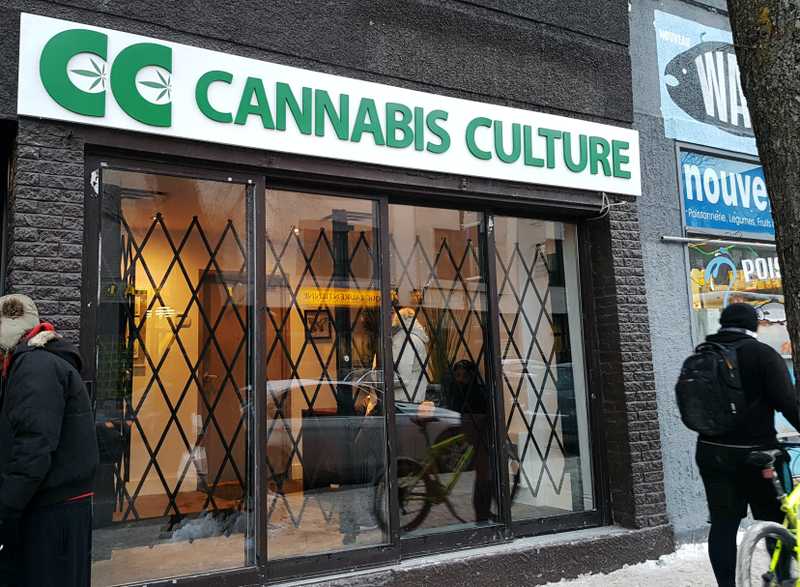According to top Liberal officials, Canada’s legalization of cannabis is arriving in mere months. And while the new regime for legal marijuana will vary by province, the one constant is that it offers a distinct opportunity for governments to shut down the black market—and the grey market too.
FOLLOW US ON FACEBOOK & INSTAGRAM
The cannabis black market in Canada developed during the prohibition years, starting in 1923. But the grey market rose to the top more recently, bridging the gap between legal medical cannabis and the black market. The grey market is visible, accessible and even marketable. These products have websites, pretty packaging and approachable entrepreneurs backing them. But will they last after the provincial governments of Canada take the reins of the legal adult-use marijuana market?
What Exactly Is the Cannabis Grey Market?
The Canadian cannabis grey market is backed by the advocates-slash-activists who want to push for a more open recreational marijuana market in a system that isn't yet legal. They're outside of the legal, taxable marijuana consumer market, but they aren't fully underground.
Canada got a better idea of what grey market cannabis comprises in 2015 when dispensaries started popping up in major cities across the country. They accepted registered medical patients, but also had their own process for determining that a customer was a medical marijuana patient. Cannabis Culture was the most prolific of these grey market enterprises, opening 21 storefronts across the country before its owners, Jodie and Marc Emery, were arrested and eventually pinned with multiple drug-related charges.
Illegal dispensaries purchase cannabis from small growers who hold Health Canada licenses under the federal medical marijuana law. They're allowed to buy the product as part of their medicinal marijuana prescription, but they aren't supposed to sell it.
In the black market, the profits support organized crime outfits. In the grey market, they support a small ecosystem of storefront dispensaries, edibles kitchens and their staff.
Is it Possible to Shut Down the Cannabis Grey Market?
The scope of the grey market in Canada might seem like the Wild West, but provincial governments, if given the order, will do whatever they can to shut those channels down. They're just visible enough to make it easier for people to purchase marijuana there than on the black market, and they threaten to shift tax revenues away from provincial monopolies in areas where the government will maintain power over all retail cannabis sales.
The warning shots have been fired, starting with Ontario where police raids of existing dispensaries are heralding a new era in which only the province will profit from recreational marijuana.
Can Grey Market Dispensaries Get Around Official, Legal Channels?
Grey market providers still have some footholds post-legalization. The first being edibles, which won't be legalized for at least one year after adult-use cannabis becomes available in the country this summer.
The second is craft cannabis and exclusive strains from "underground" growers that licensed producers (LPs) don't have access to—grey market dispensaries position these as delicacies that attract a number of cannabis consumers.
Pricing may be another factor. While LPs strive to provide reasonable and competitive rates for every marijuana strain they grow, there’s still plenty of grey market and black market product that averages $8.18 per gram—below the average LP price of $10 per gram.
Statistics Canada just released a set of infographics based on some crowdsourcing that shows just how much Canadians are paying for their cannabis depending on where they live.
- In 2017, the average price for one gram of recreational cannabis in Canada was $7.43.
- The most expensive place to buy was in Nunavut and the Territories at $9.52 to $10.47 per gram.
- British Columbia seems to provide the best-priced option at $6.94 per gram.
British Columbia: The Best Place for Grey Market Dispensaries Post-Legalization
In the province of British Columbia, where both private and public shops will be allowed, regulators are being urged to incorporate existing grey market cannabis dispensaries into the new plan.
The shops that exist in Vancouver persevere, because the city has set up bylaws that designate specific areas as safe for these grey market shops. Their sister stores may have been raided into oblivion by police in other provinces, but brands like Cannabis Culture and Eden still stand.
Currently, these outfits are selling a lot of illegal product. Perhaps making the transition into legitimacy is as simple as switching to products from LPs. The selection may decrease, the prices may increase, but at least the "open" sign will stay lit.
Photo credit: Fred:
